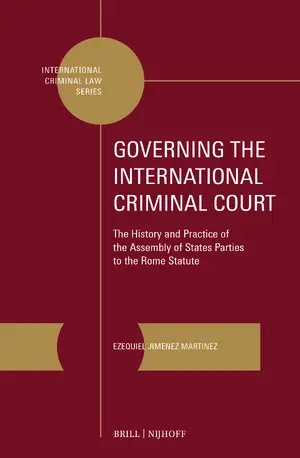
Why does the International Criminal Court fall short of expectations? This book contends that the answer lies in the governance role of the Assembly of States Parties -the Court's central, yet often overlooked, institutional body. Far beyond a diplomatic forum, the Assembly retains a crucial role in electing judges and prosecutors, adopting the budget, amending legal texts, and overseeing cooperation. While legal scholarship tends to focus on courtroom activity, this book shifts attention to the Assembly of States Parties as the true engine of the Court.
Based on original research-including 154 Assembly resolutions, 266 Bureau meeting records, and previously unexamined official documents-it offers the first comprehensive analysis of the Assembly's history and practice from 2002 to 2021. The book discusses the Assembly in the context of "international judicial governance institution" (injugovin), positioning it within broader debates on international law and global governance.
By dissecting the Assembly's functions-elections, budgetary control, legal oversight, cooperation mechanisms, and treaty amendments-the book shows how States Parties have collectively shaped, and at times constrained, the Court's evolution. As such, the book argues the Court's challenges are not merely judicial-they are governance problems.